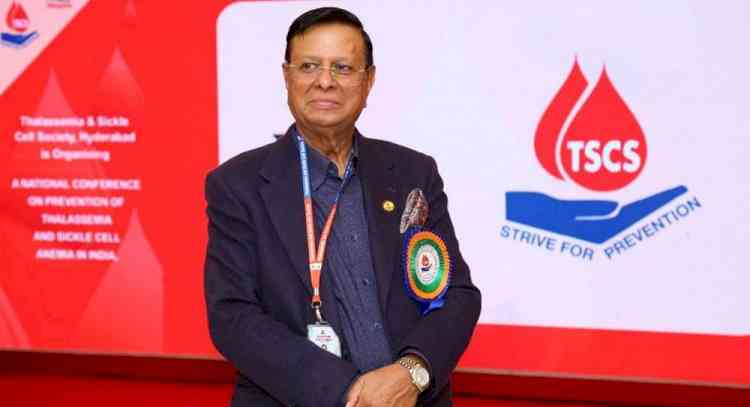Smoking Among Teens: Avoidable Heart-Breaker
ALMOST everyone knows that smoking causes cancer, emphysema and heart disease; that it can shorten one’s life by 14 years or more; and that the habit can cost a smoker thousands of rupees a year. So, how come people, especially youngsters, are still lighting up? The answer, in a word, is addiction.

by Dr Harinder Singh Bedi
ALMOST everyone knows that smoking causes cancer, emphysema and heart disease; that it can shorten one’s life by 14 years or more; and that the habit can cost a smoker thousands of rupees a year. So, how come people, especially youngsters, are still lighting up? The answer, in a word, is addiction.
Smoking as a habit is hard to break because tobacco contains nicotine, which is highly addictive. Like heroin or other addictive drugs, the body and mind quickly become so used to the nicotine in cigarettes that a person needs to have it just to feel normal. In almost every case, no smoker begins as an adult. Statistics show that about nine out of 10 tobacco users start before they are 18. Some teens who smoke say they start because they think it helps them look older (it does — if yellow teeth and wrinkles are the look you want)!
The theme for World No-Tobacco Day 2024 is 'Protecting Children from Tobacco Industry Interference'. This theme focuses on advocating for policies and measures that prevent the tobacco industry from targeting young people with harmful tobacco products.
Others smoke because they think it helps them relax (it doesn’t — the heart actually beats faster while a person’s smoking). Some light up as a way to feel rebellious or to set themselves apart (which works if you want your friends to hang out some place else while you are puffing away). Some start because their friends smoke — or just because it gives them something to do.
Some teens, especially girls, start smoking because they think it may help keep their weight down.
Smokers not only develop wrinkles and yellow teeth. They also lose bone density, which increases their risk of developing osteoporosis (a condition that causes older people to become bent over).
Smokers also tend to be less active than nonsmokers because smoking affects lung power. Smoking can also cause fertility problems in both men and women and can impact sexual health in males.
The consequences of smoking may seem very far off to many teens, but long-term health problems aren’t the only hazard of smoking. Nicotine and other toxins in cigarettes, cigars and pipes can affect a person’s body quickly, which means that teen-smokers experience many health problems like bad skin, bad breath, bad-smelling clothes and hair, reduced athletics performance, greater risk of injury, slower healing and greater risk of illnesses like cold, bronchitis and pneumonia. And people with certain health conditions like asthma become more sick if they smoke.
Smoking is one of the most important risk factors for heart disease in people below 40 years of age. Three out of four young victims of heart attack are smokers. Though men are more adversely affected by smoking, the risk of heart disease increases 10 fold in women taking birth control (oral contraceptive) pills. The risk is further accentuated when the smoker has other major risk factors like high blood pressure, a high cholesterol level, diabetes mellitus or a family history of heart disease.
We are seeing more and more young patients needing bypass surgery at the age of 30 years. The fast-paced, adrenaline pumping deadline and target-oriented, sedentary and fast-food-laced lifestyle is taking its toll. One factor which can be easily controlled is the avoidance of tobacco.
A nationwide ban on smoking in the workplace could potentially prevent thousands of heart attacks and strokes, according to researchers from the University of California at San Francisco. Such a ban would also substantially benefit nonsmokers who face risks from second-hand smoke. That is why the theme of this year’s World Anti-Tobacco Day is “SMOKE-FREE ENVIRONMENTS”.
Staying smoke-free will give you more of everything — more energy, better performance, better looks, more money in your pocket, and, in the long run, more years to live!
Smoking remains the leading cause of preventable death and has negative health impact on people at all stages of life. It harms unborn babies, infants, children, adolescents, adults and seniors alike.
(The writer is Director Cardio Vascular & Thoracic Sciences, Park Grecian Hospital Mohali Punjab and was earlier at the Escorts Heart New Delhi and the St Vincent’s Hospital Sydney.)


 City Air News
City Air News 








